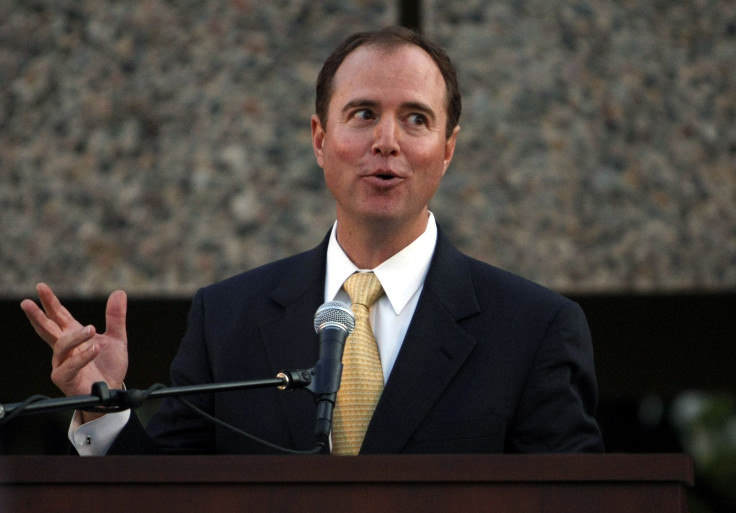Adam Schiff To Take On DOJ, Attorney General William Barr Over Unredacted Mueller Report

The Department of Justice (DOJ) has missed a Congressional deadline to deliver a full and unredacted copy of Special Counsel Robert Mueller’s Russia probe, and the House Intelligence Committee now will “reluctantly” weigh possible enforcement action to compel the release of the document.
Intelligence Committee Chair Adam Schiff, D-Calif., said he will schedule a meeting this week to determine whether and how to compel Attorney General William Barr and the DOJ to release the report and underlying documents after DOJ missed the deadline last week.
The House Judiciary Committee already has taken steps to hold Barr in contempt of Congress after making a similar and unanswered request.
Rep. Adam Schiff says impeachment proceedings against President Trump could be a "tool" to get information and evidence that the administration is blocking from Congress https://t.co/WQw5C7PoEr pic.twitter.com/1lXo5BoWpy
— CBS News (@CBSNews) May 19, 2019
Schiff’s call for enforcement action is the most recent step in an escalating dispute between the judiciary and legislative branches to review a full and complete version of an investigation into the executive branch of government. The Constitutional framers devised this secular trinity to hold each branch of government accountable through a system of checks and balances. Only in rare cases, such as in the lead up to the resignation of former President Richard Nixon, and a few others, have the division of powers of the federal government been so contested.
“The deadline came and went without the production of a single document, raising profound questions about whether the department has any intention to honor its legal obligations,” Schiff said in the wake of the missed deadline.
A White House lawyer last week sent a 12-page letter to House Judiciary Committee Chair Jerry Nadler, D-N.Y., calling the ongoing congressional investigations an attempt to harass the president, and questioning the powers of Congress to investigate possible criminal activity associated with the executive branch.
National Security-Related Congressional Hearings, May 13-17 https://t.co/G8apDRxqvZ
— Edward (@ESotomayorM) May 17, 2019
In response, Speaker of the House Nancy Pelosi, D-Calif., called the response “beneath the dignity of the president of the United States.” The letter also asserted the Trump administration would not permit administration officials to testify before Congress, and would vigorously fight subpoenas as the Democrat-controlled House seeks to investigate the president’s finances and other decisions.
The letter, written by White House Counsel Pat Cipollone, argued Congress is a legislative body, not an enforcement body, and does not have the right to pursue investigations. Nadler called the response “astounding and dangerous.”
Both chambers of Congress routinely conduct investigations. Besides the Watergate cover-up that led to Nixon’s resignation, Congress has investigated the Iran-Contra affair, in which the Reagan administration was accused of exchanging weapons for the release of hostages, and the Monica Lewinsky case, which led to a House impeachment of President Bill Clinton. Secretary of State Hillary Clinton also was investigated by Congress for using a personal computer server to send and receive potentially sensitive government email.
Schiff called on the DOJ to comply with the subpoena in advance of the meeting to consider what is a growing array of potential actions, including holding Barr in contempt of Congress, levying fines or other civil actions.
Speaker Nancy Pelosi: "I think the president every day gives grounds for impeachment in terms of obstruction of justice." pic.twitter.com/J43MR5RqFV
— The Hill (@thehill) May 19, 2019
Pelosi added late last week that nothing is off the table and that one of the purposes of congressional investigations is impeachment. She added House Democrats hope to be “subpoena friendly,” then “subpoena otherwise.”
© Copyright IBTimes 2025. All rights reserved.





















